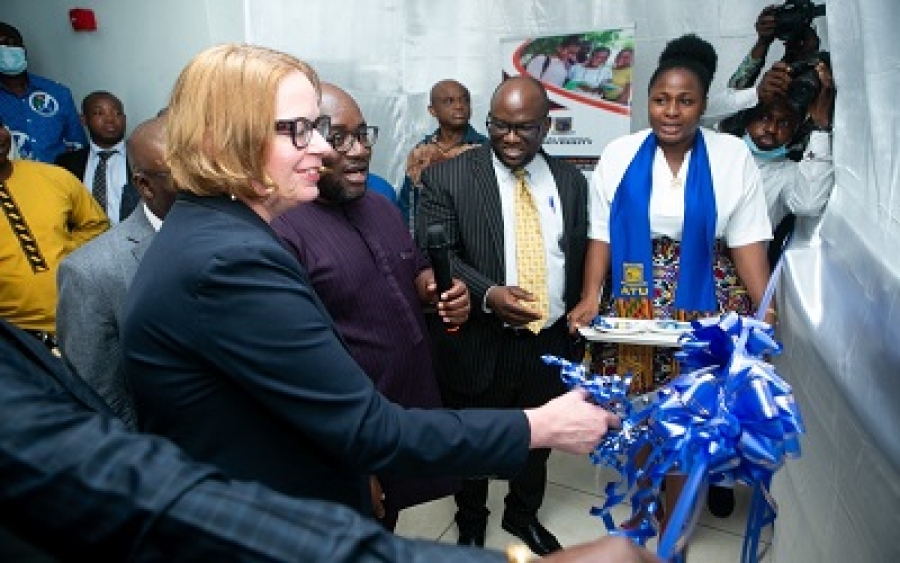
By Isaac AIDOO, Accra
THE Millennium Development Authority (MiDA) has in collaboration with the Energy Commission (EC) of Ghana, established Sustainable Energy Service Centres (SESCs) in three tertiary institutions in Ghana to train and certify professionals who will assist organisations to adopt and implement cost-effective energy saving measures in their operations.
The three SESCs located at the Accra Technical University (ATU), the Kwame Nkrumah University of Science and Technology (KNUST) and the University of Energy and Natural Resources (UENR) are the first of its kind in the country with potential to serve entities across the West African Sub-region.
The establishment of the SESCs is part of the Ghana Power Compact Programme’s Energy Efficiency and Demand Side Management (EEDSM) Project, funded by the Millennium Challenge Corporation (MCC), an Agency of the United States (US) government, and the Government of Ghana. The EEDSM Project introduced through its Activities, innovative approaches to the efficient use and conservation of power in Ghana.
Energy-efficient systems present significant cost-saving benefits to Ghana’s Power Utility Providers, public and private Institutions, industrial and commercial consumers and ultimately impacts the value of Government’s investments in the sector.
Findings of a Study by Development Environergy Services Limited (DESL), the consultant on the project, reveal that adopting energy-efficient systems in Ghana will result in over 4000 GWh annual energy savings, representing 30% of Ghana’s current energy demand.
Additionally, an estimated minimum peak load savings of 500 MW can be achieved with the adoption of energy efficiency behaviours, thereby reducing the need for additional investments in generation capacity.
Speaking at the inauguration of the three centres in Accra on Tuesday, the Chief Executive Officer of MiDA, Mr Martin Eson Benjamin noted that the activities under the EEDSM project sought to plug any gaps in the efficient use of the country’s electrical power resources.
“MiDA felt the need to support the Energy Commission’s overtures to provide resources to some selected tertiary Institutions and equip them with the two key requirements for carrying out energy audits,” he stated.
The requirements are well-trained Staff, with relevant knowledge/skills; and access to a set of equipment needed to carry out the necessary measurements with regards to power utilisation in businesses and in our homes.
Touching on the importance of energy in the scheme of things, Mr Eson-Benjamin pointed out that “energy matters for poverty reduction and sustainable development. It matters for economic growth and for combating climate change.”
According to him, “adopting best practices in energy efficiency will create energy savings at the consumer and national level, and deliver these climate change benefits through avoided Climate Hazard Group emissions in avoided electricity consumption.”
The MiDA CEO challenged the three institutions to collaborate with the Energy Commission to put Ghana on the world energy pedestal, as far as ensuring the efficient use of power is concerned.
“It is MiDA’s prayer that these Centres will be well-patronised by all and that the Institutions will soon become household names among our small, medium and large industries in Ghana. A successful collaboration with AGI, will ensure this,” he noted.
Director, Renewable Energy at the EC, Mr Kofi Agyarko said through collaborations, Ghana had been able to develop 21 standards for electrical appliance and renewable energy protects.
Deputy Chief of Missions at the US Embassy, Ms Nicole Chulicks said the MCC Ghana Power Compact invested $316 million across Ghana to improve power infrastructure, advance energy efficiency programmes, and expand opportunities for women and youth in the power sector.
SOURCE: The finder